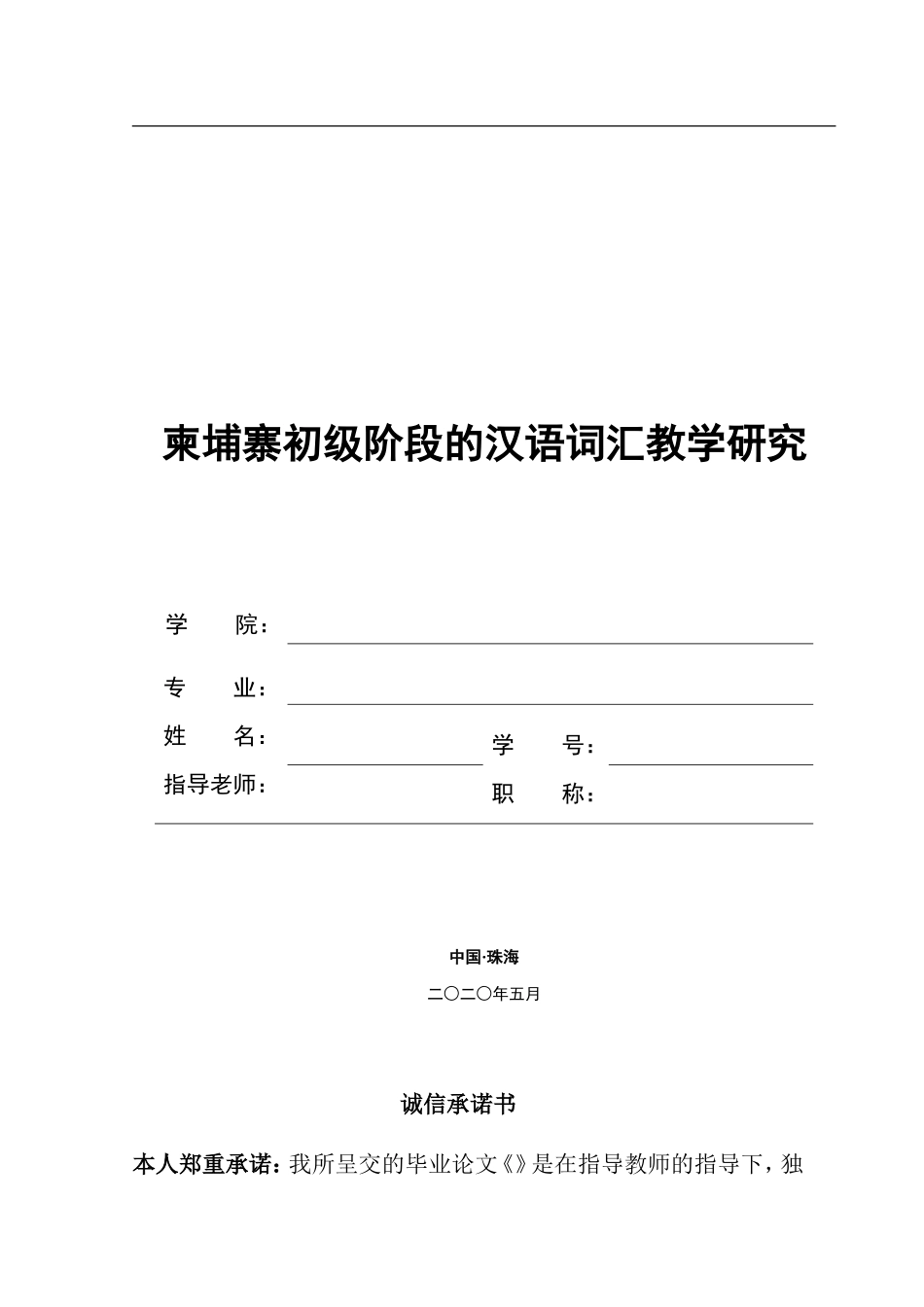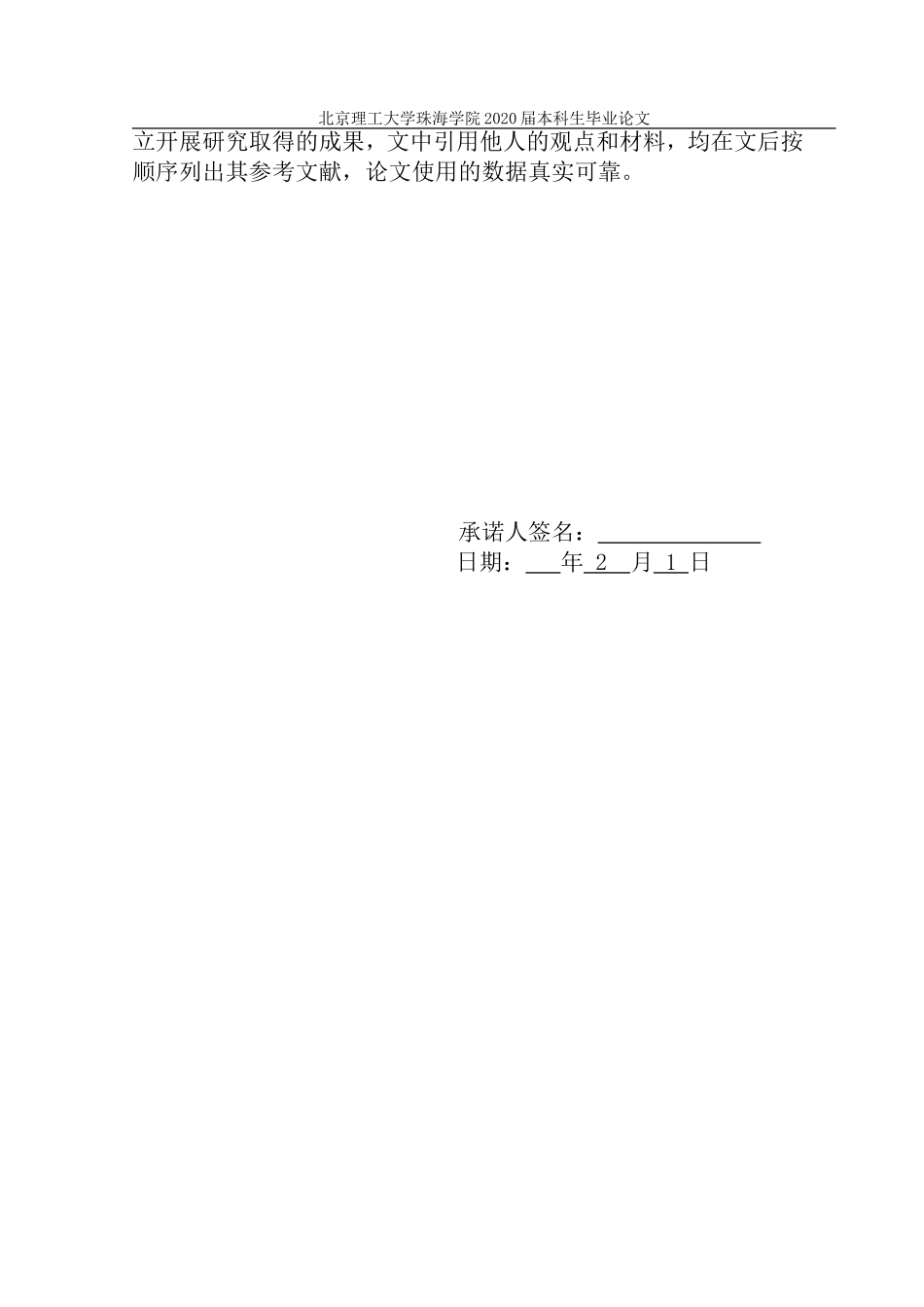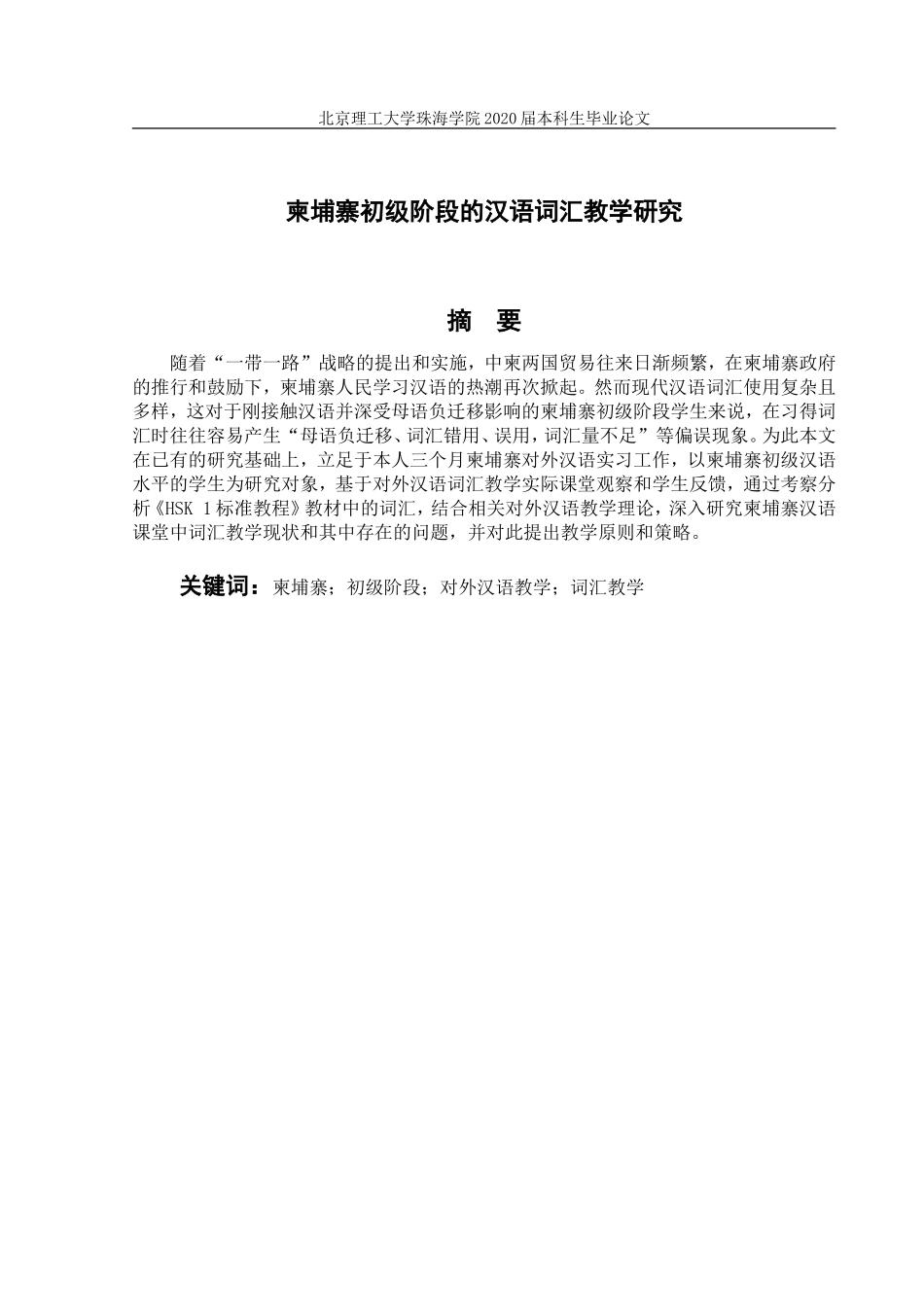柬埔寨初级阶段的汉语词汇教学研究学 院:专 业:姓 名:指导老师:学 号:职 称:中国·珠海二○二○年五月诚信承诺书本人郑重承诺:我所呈交的毕业论文《》是在指导教师的指导下,独北京理工大学珠海学院 2020 届本科生毕业论文立开展研究取得的成果,文中引用他人的观点和材料,均在文后按顺序列出其参考文献,论文使用的数据真实可靠。承诺人签名: 日期: 年 2 月 1 日北京理工大学珠海学院 2020 届本科生毕业论文柬埔寨初级阶段的汉语词汇教学研究摘 要随着“一带一路”战略的提出和实施,中柬两国贸易往来日渐频繁,在柬埔寨政府的推行和鼓励下,柬埔寨人民学习汉语的热潮再次掀起。然而现代汉语词汇使用复杂且多样,这对于刚接触汉语并深受母语负迁移影响的柬埔寨初级阶段学生来说,在习得词汇时往往容易产生“母语负迁移、词汇错用、误用,词汇量不足”等偏误现象。为此本文在已有的研究基础上,立足于本人三个月柬埔寨对外汉语实习工作,以柬埔寨初级汉语水平的学生为研究对象,基于对外汉语词汇教学实际课堂观察和学生反馈,通过考察分析《HSK 1 标准教程》教材中的词汇,结合相关对外汉语教学理论,深入研究柬埔寨汉语课堂中词汇教学现状和其中存在的问题,并对此提出教学原则和策略。关键词:柬埔寨;初级阶段;对外汉语教学;词汇教学北京理工大学珠海学院 2020 届本科生毕业论文Research on Chinese vocabulary teaching in the primary stage of Cambodia AbstractWith the introduction and implementation of the "One Belt And One Road" strategy, trade between China and Cambodia has become increasingly frequent. With the promotion and encouragement of the Cambodian government, the interest of the Cambodian people in learning Chinese has once again surged. However, the use of modern Chinese vocabulary is complex and diverse. For Cambodian students at the primary stage who are new to Chinese and deeply affected by negative transfer of their mother tongue, they are prone to errors such as "negative transfer of mother tongue, misapplication and misuse of vocabulary, and insufficient vocabulary" when they acquire vocabulary. This p...


